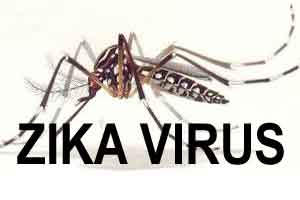- Home
- Editorial
- News
- Practice Guidelines
- Anesthesiology Guidelines
- Cancer Guidelines
- Cardiac Sciences Guidelines
- Critical Care Guidelines
- Dentistry Guidelines
- Dermatology Guidelines
- Diabetes and Endo Guidelines
- Diagnostics Guidelines
- ENT Guidelines
- Featured Practice Guidelines
- Gastroenterology Guidelines
- Geriatrics Guidelines
- Medicine Guidelines
- Nephrology Guidelines
- Neurosciences Guidelines
- Obs and Gynae Guidelines
- Ophthalmology Guidelines
- Orthopaedics Guidelines
- Paediatrics Guidelines
- Psychiatry Guidelines
- Pulmonology Guidelines
- Radiology Guidelines
- Surgery Guidelines
- Urology Guidelines
FDA approves first test for screening Zika virus in blood donations

The U.S. Food and Drug Administration today approved the cobas Zika test, a qualitative nucleic acid test for the detection of Zika virus RNA in individual plasma specimens obtained from volunteer donors of whole blood and blood components, and from living organ donors. It is intended for use by blood collection establishments to detect Zika virus in blood donations, not for the individual diagnosis of Zika virus infection.
"Today’s action represents the first approval of a Zika virus detection test for use with screening the nation’s blood supply,"said Peter Marks, M.D., Ph.D., director of the FDA’s Center for Biologics Evaluation and Research. "Screening blood donations for the Zika virus is critical to preventing infected donations from entering the U.S. blood supply. Today’s approval is the result of a commitment by the manufacturer to work rapidly and collaboratively with the FDA and the blood collection industry to respond to a public health crisis and ensure the safety of blood in the U.S. and its territories."
In August 2016, the FDA issued a final guidance document recommending that all states and territories screen individual units of whole blood and blood components with an investigational blood screening test available under an investigational new drug (IND) application, or a licensed (approved) test when available.
Before today, several blood collection establishments used the cobas Zika test under IND in order to follow the recommendations in the FDA’s 2016 guidance document. The data collected from this testing, and from additional studies performed by the manufacturer, demonstrated that the cobas Zika test is an effective test to screen blood donors for Zika virus infection. The test’s clinical specificity was evaluated by testing individual samples from blood donations at five external laboratory sites, resulting in clinical specificity of more than 99 percent.
The Zika virus is transmitted primarily by mosquitos (Aedes aegypti), but it can also be spread through blood transfusion and sexual contact. Although most people infected with Zika virus do not develop symptoms, when symptoms do occur they may include fever, arthralgia (joint pain), maculopapular rash (red area with small bumps), and conjunctivitis (red, irritated eyes). In addition, Zika virus infection can cause a serious neurological disease in adults, and infection during pregnancy can cause serious birth defects.
The cobas Zika test is intended for use on the fully automated cobas 6800 and cobas 8800 systems. The cobas Zika test, cobas 6800, and cobas 8800 systems are manufactured by Roche Molecular Systems, Inc.
The FDA, an agency within the U.S. Department of Health and Human Services, protects the public health by assuring the safety, effectiveness, and security of human and veterinary drugs, vaccines, and other biological products for human use, and medical devices. The agency also is responsible for the safety and security of our nation’s food supply, cosmetics, dietary supplements, products that give off electronic radiation, and for regulating tobacco products.

Disclaimer: This site is primarily intended for healthcare professionals. Any content/information on this website does not replace the advice of medical and/or health professionals and should not be construed as medical/diagnostic advice/endorsement or prescription. Use of this site is subject to our terms of use, privacy policy, advertisement policy. © 2020 Minerva Medical Treatment Pvt Ltd